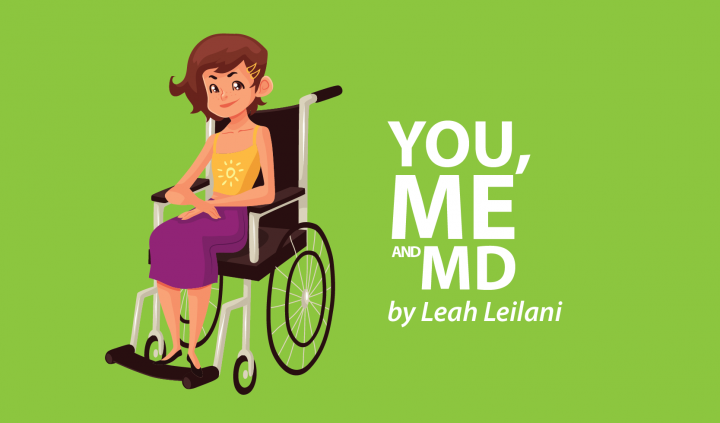What Teachers Should Know About Students with Disabilities
Written by |

Teachers must educate classes full of rambunctious, bored kids while trying to keep them engaged and quiet. Having a student with disabilities can add a whole new layer of complications to a teacher’s strenuous job.
My disease caused many developmental delays, including an inability to walk until about 17 months. Compared to an average baby, that is quite late. In kindergarten, those delays crossed over to academics. By first grade, I still struggled to learn my ABCs.
As mitochondrial myopathy set in and my body grew weaker, I had to shorten my time at school. I went from attending seven hours of school, including recess and lunch, to only two hours each day. The brain fog due to Mito made it hard to concentrate on lessons and tests.
Although I still have big gaps in my education, I’m thankful for the time that I had in a school setting because it gave me a chance to make friends and socialize.
Since freshman year of high school, I haven’t been able to attend school. Getting dressed and ready each morning now is a difficult task for my body. I missed a lot of my eighth-grade year due to problems with my heart and constant illness.
Join our MD forums: an online community especially for patients with Muscular Atrophy.
Thankfully, my high school district provides me with a home-school teacher who visits my house each Monday and Friday for an hour and a half. This allows me to stay in bed while my teacher sits in a chair on the opposite side of my bedroom. Since I didn’t achieve the necessary amount of credits to graduate by age 18, the district allows me to use their home-school services until I’m 22.
Following are tips for teachers who are unsure of what to expect when teaching a student with disabilities.
Medical equipment
Don’t be alarmed if a student requires medical equipment during class. The equipment may include a mechanical ventilator to help them breathe, and a mobility aid such as a wheelchair, walker, or cane. Some students may have an IV stand if they need to be connected to fluids or administer nutrition from a feeding tube. If a student can transfer from their mobility aid into a chair, the chair may need customization to fit their needs.
One-on-one student aid
Your student may need help with tasks such as writing, note-taking, or carrying textbooks. In this case, it is best to have a one-on-one student aid appointed. Someone employed by the district is ideal because they help you focus on the rest of your students.
Modified school attendance
A student with disabilities may need shortened school attendance for reasons like a weak immune system or fatigue. Some students may only attend classes a couple of times a week while following up with a home-school teacher.
Dismissal for test-taking
Avoiding participation in test-taking could be a good option for your student. Test-taking could make your student anxious or cause them to overexert themselves.
Academic goals
Keep in mind that a student with disabilities may have different academic goals than other students. Memorization skills and due dates for projects and assignments may not be priorities, seeing as our health comes first.
Discipline us like any other student
If you see a student with disabilities talking during class, don’t be afraid to quiet them. We don’t want to treated like we’re fragile. Another thing to consider is that special treatment may result in feeling like an outcast among our classmates.
I’ve been blessed with incredible, influential teachers throughout my life. I have them to thank for my writing skills, musical exposure, sense of humor, and good memories. To this day, I stay connected with some of them through social media. There is nothing quite like a teacher who changes your life for the better.
***
Note: Muscular Dystrophy News is strictly a news and information website about the disease. It does not provide medical advice, diagnosis or treatment. This content is not intended to be a substitute for professional medical advice, diagnosis, or treatment. Always seek the advice of your physician or another qualified health provider with any questions you may have regarding a medical condition. Never disregard professional medical advice or delay in seeking it because of something you have read on this website. The opinions expressed in this column are not those of Muscular Dystrophy News or its parent company, Bionews Services, and are intended to spark discussion about issues pertaining to muscular dystrophy.







Shailesh
Topic "What Teachers Should Know About Students with Disabilities" Dated : 26th Feb 2019
Hello Mam,
This is very useful information Which is shared by you with us thank you so much. Can i share this information with my friend and colleagues?